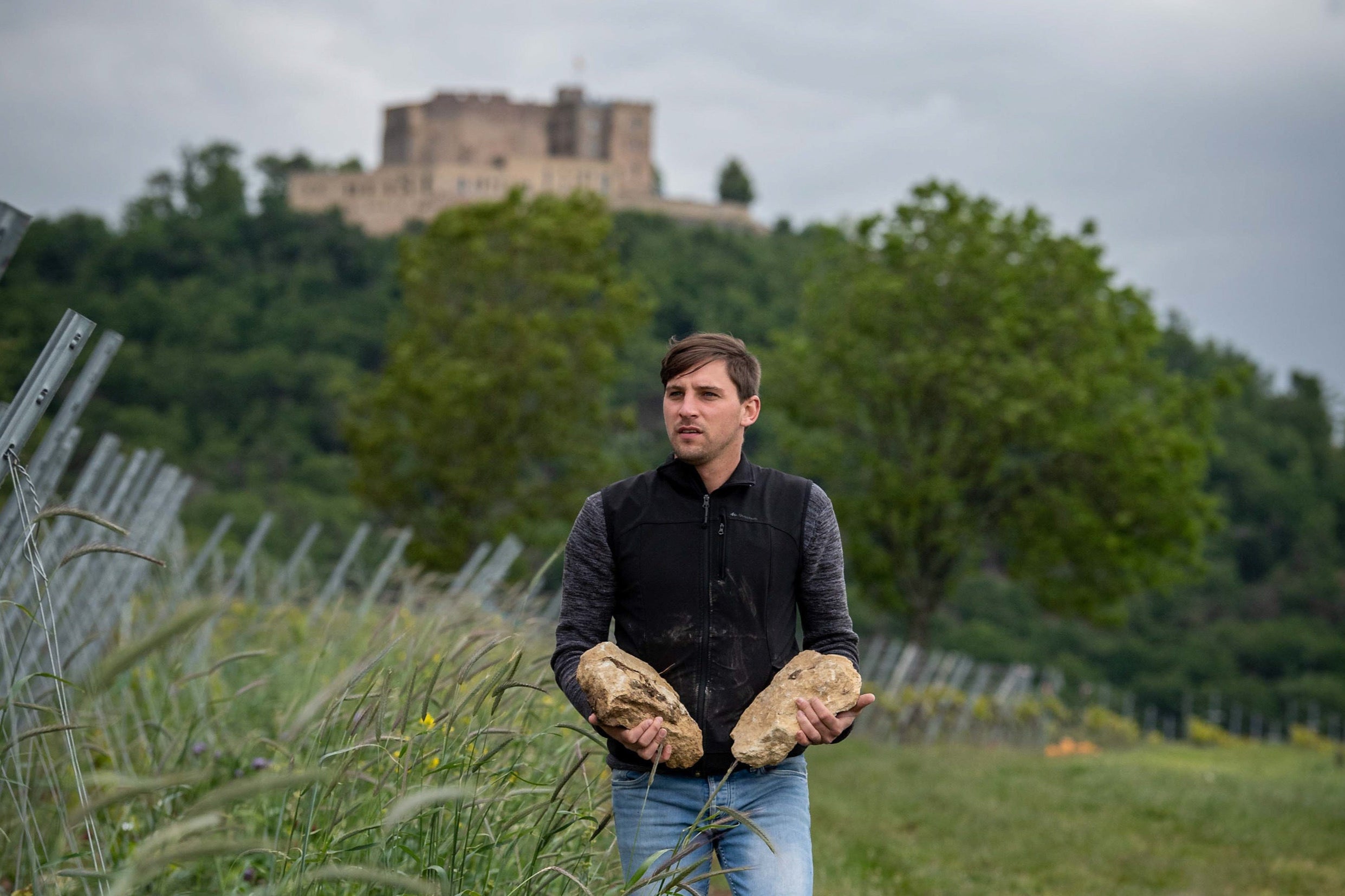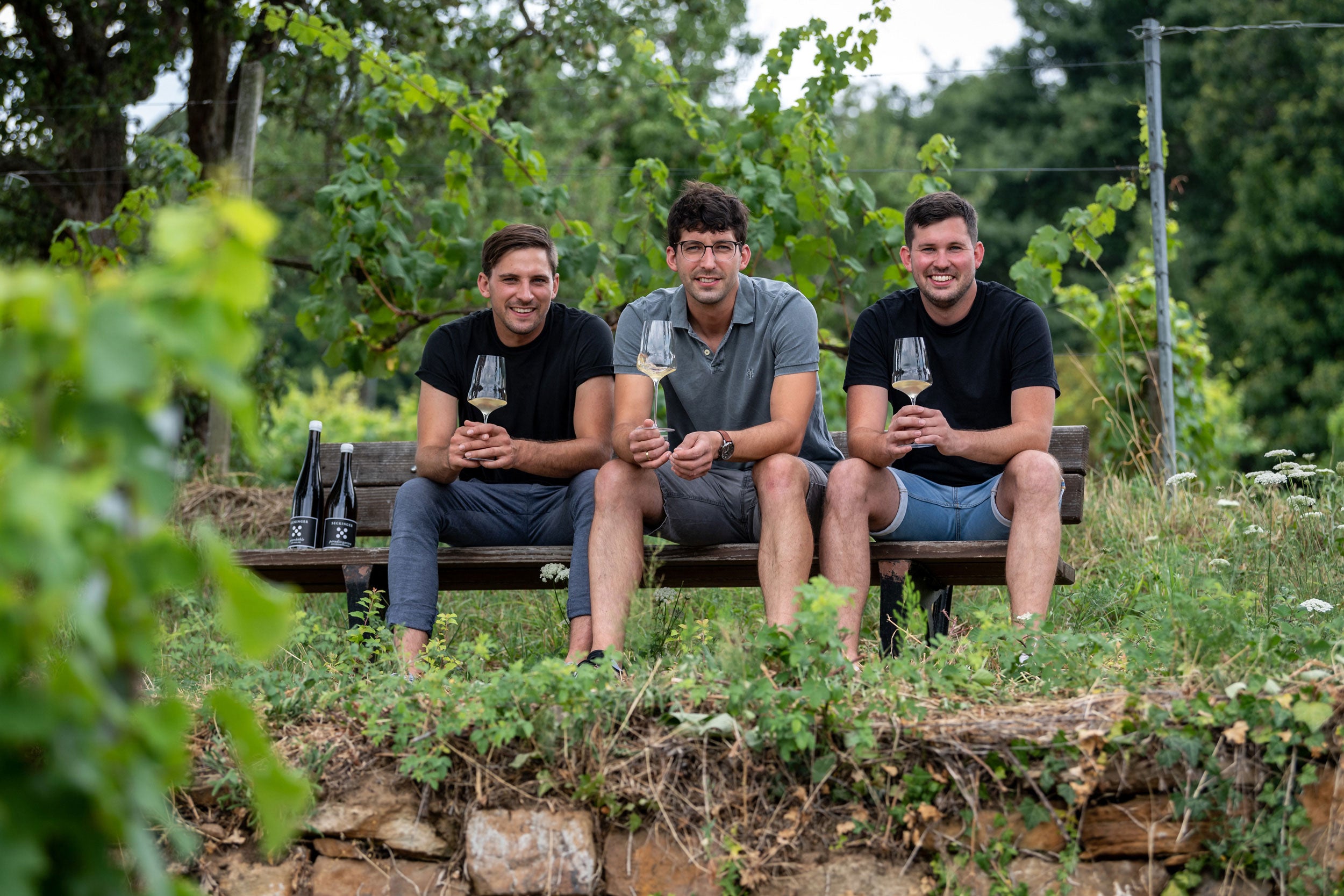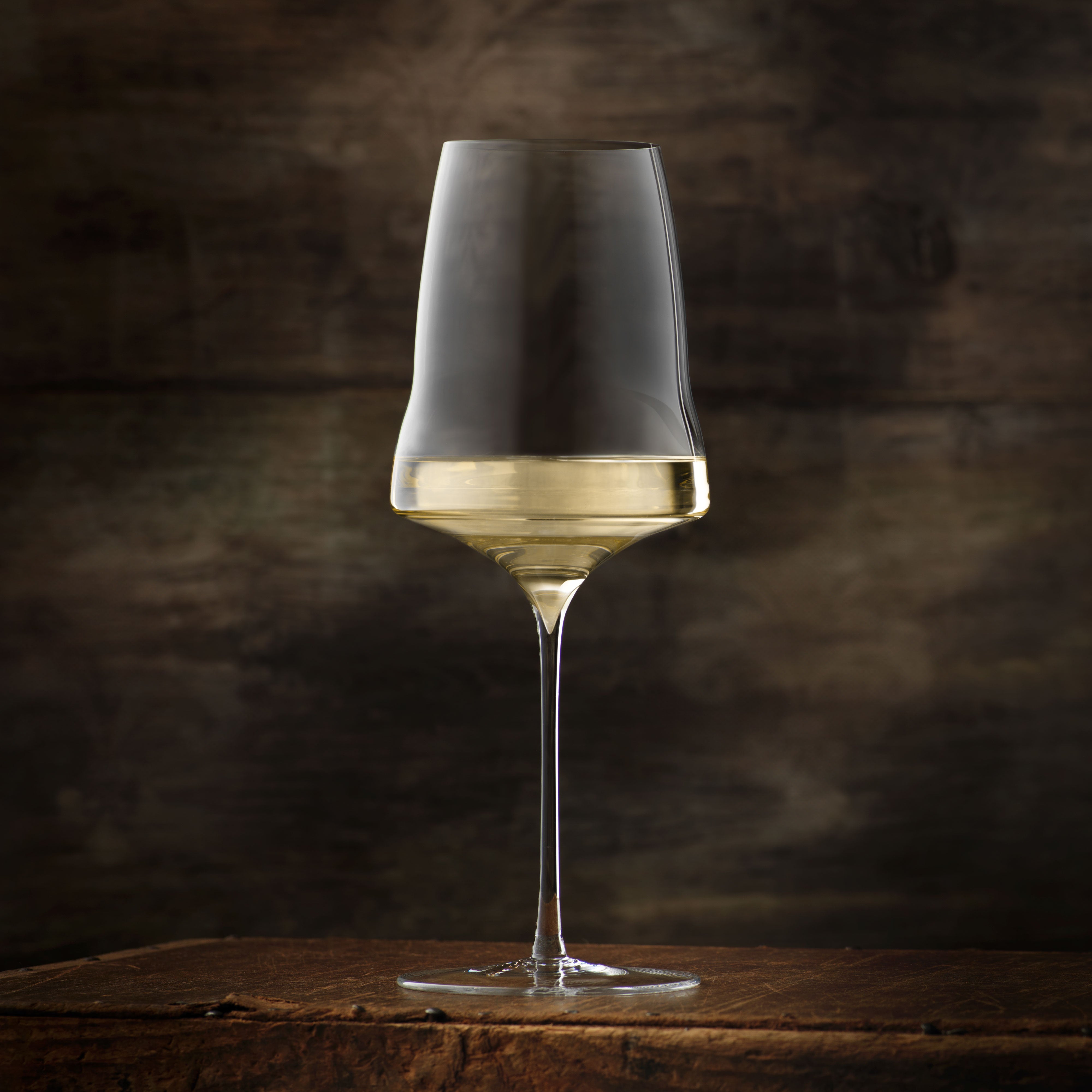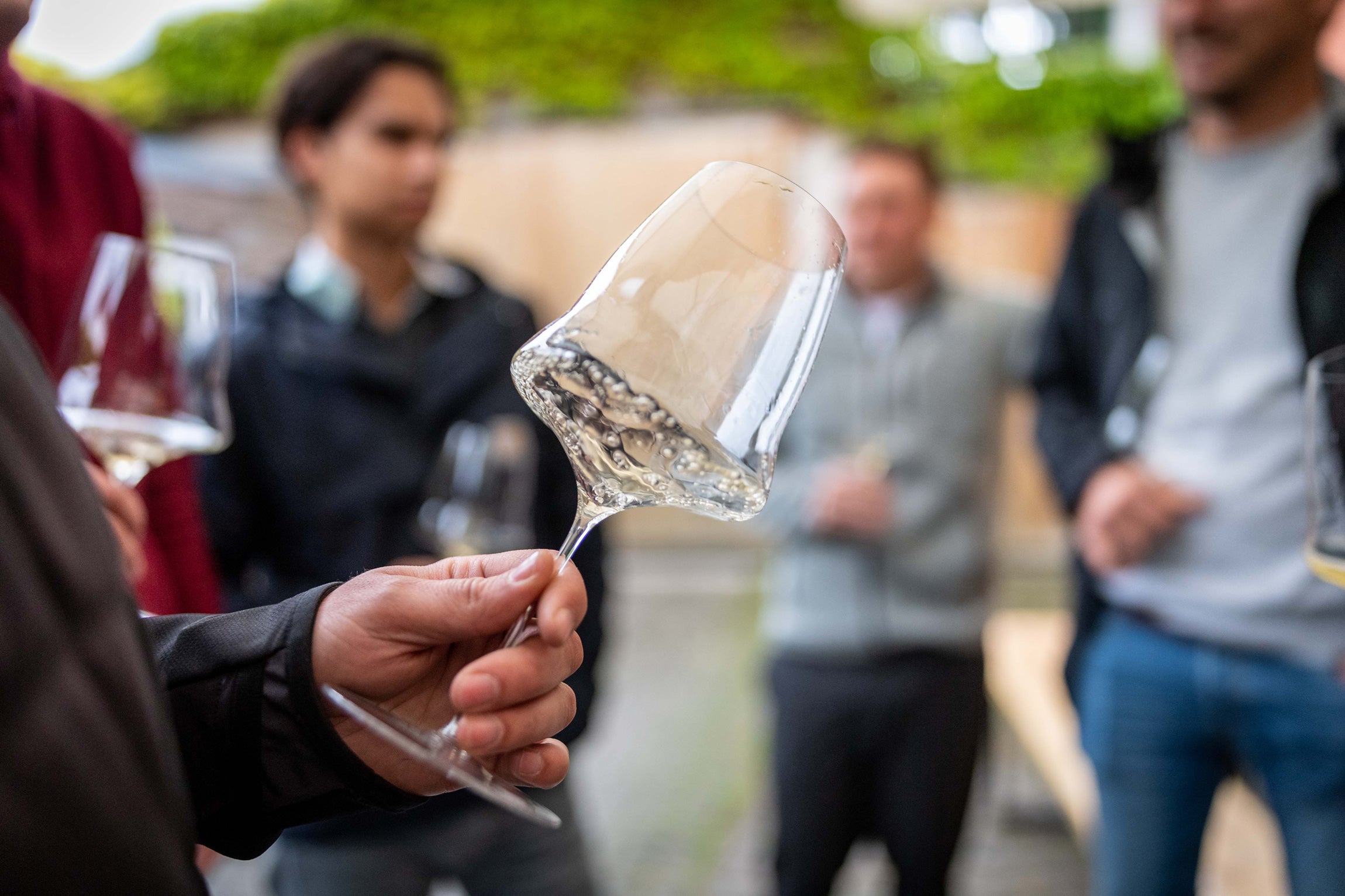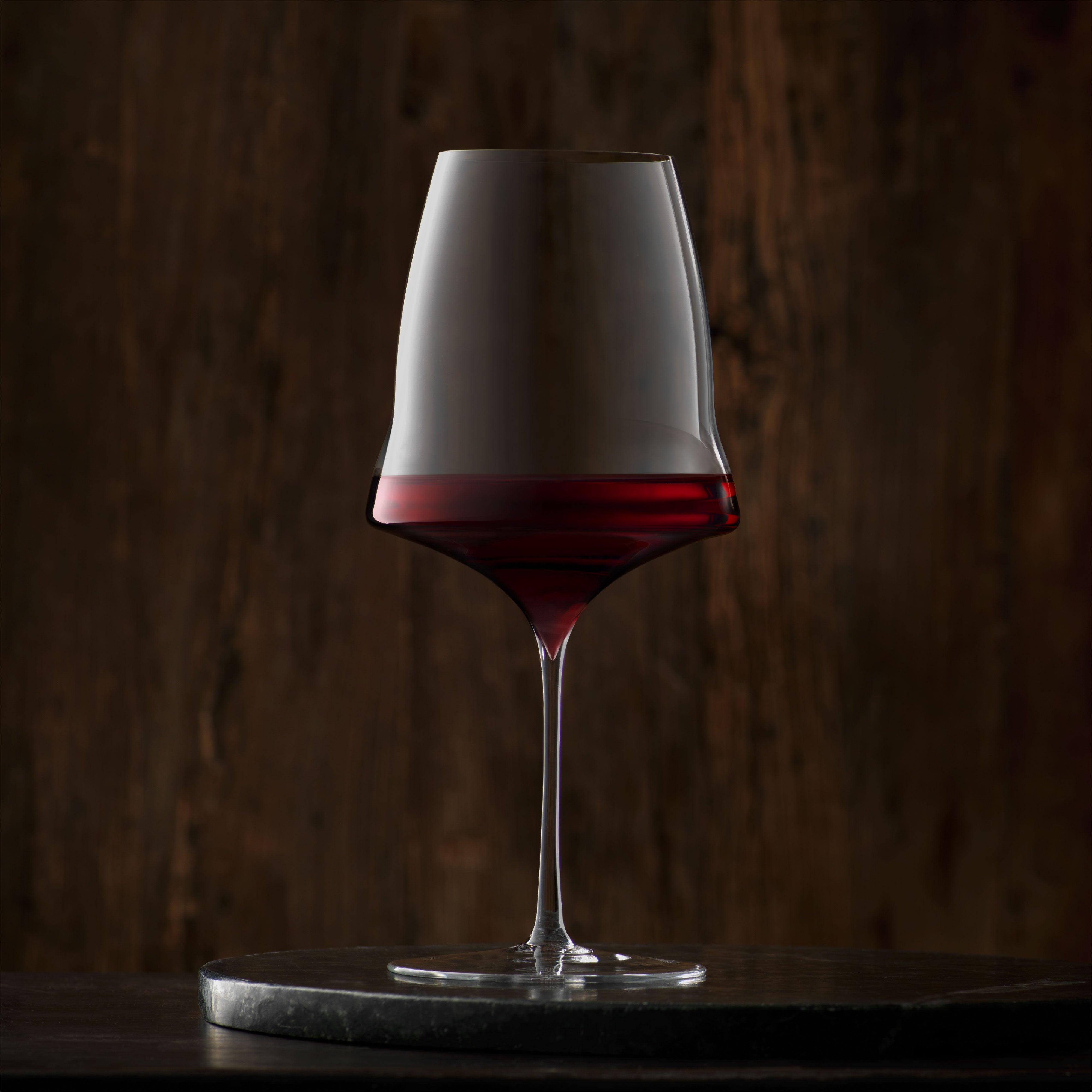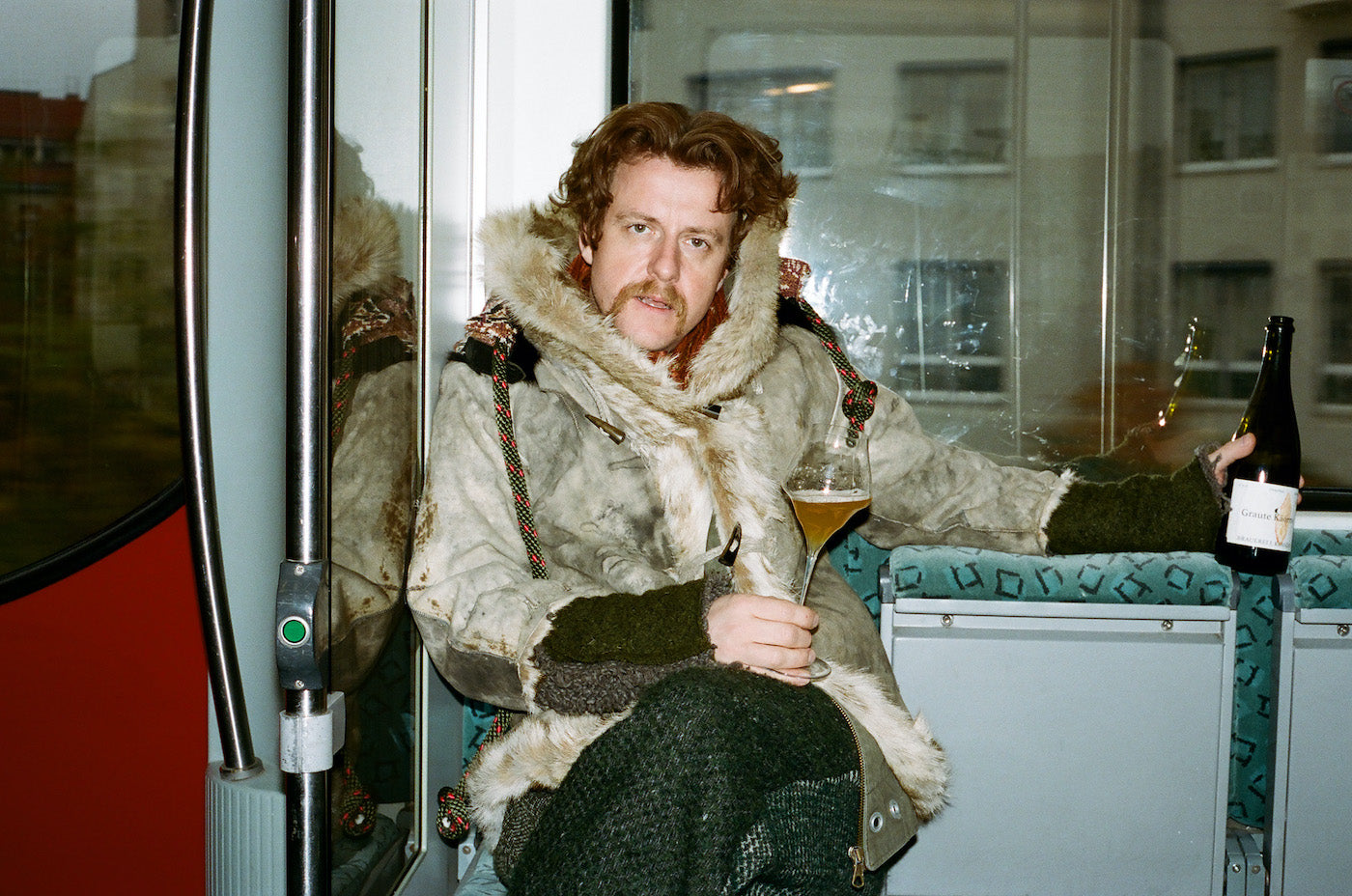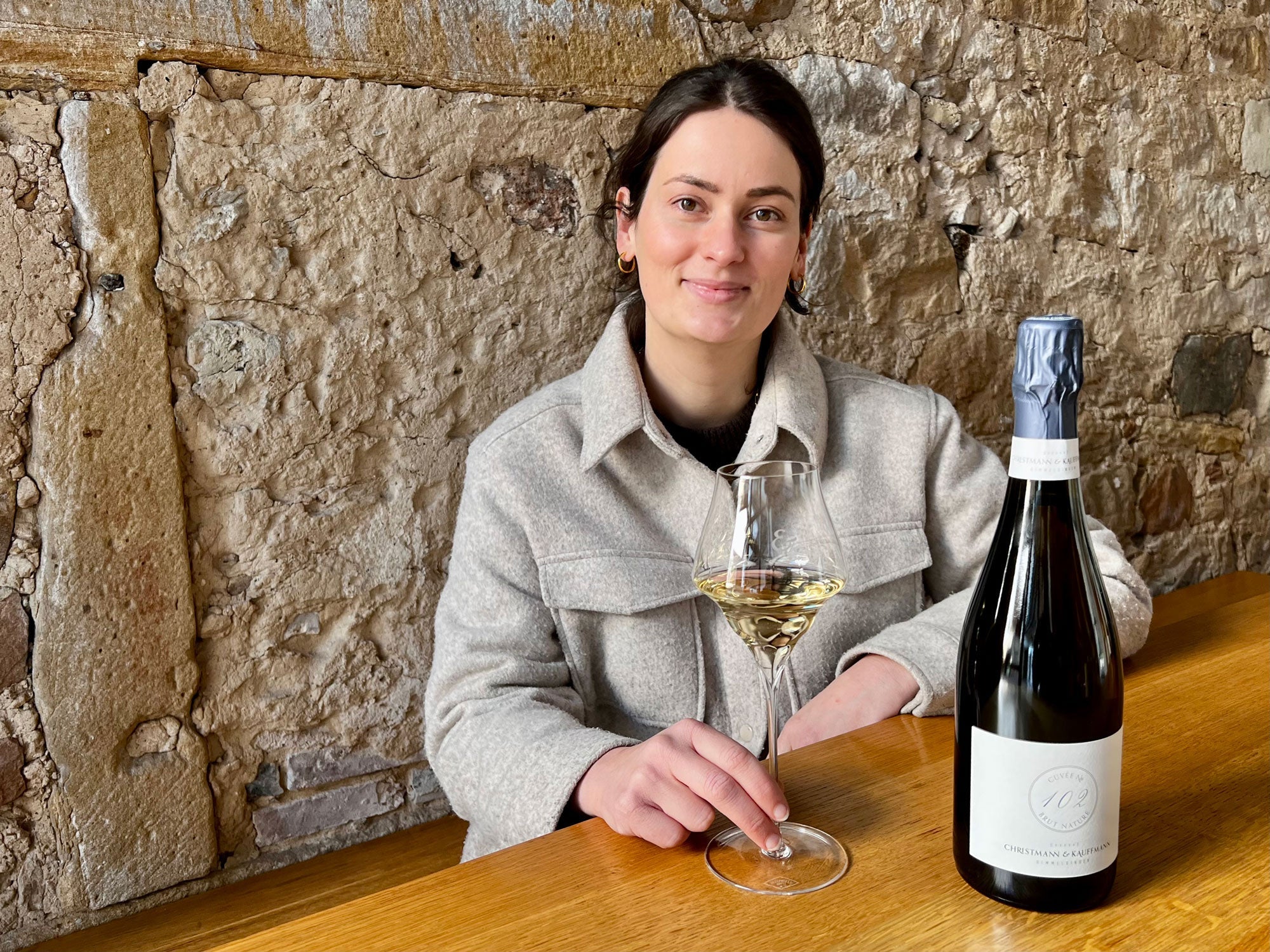Jonas, Lukas, and Philipp Seckinger run their family winery, founded in 2012, located in the Palatinate region of Germany. Their work is grounded in renowned vineyard sites at Mittelhaardt and the adjacent Southern Palatinate. They practice biodynamic farming, creating unconventional wines that delight both experts and casual wine lovers. Their philosophy relies on minimal intervention and long sur lie aging, lending their wines natural stability and unique character.
Jonas Seckinger, the second eldest of the brothers, is responsible for the winery's cellar and export operations. In our conversation, he discusses his winemaking philosophy and reveals why Josephine No 3 is his favorite glass.
How did you get into wine?
My father was a hobby winemaker who tended small plots of vines. I found that fascinating, so I pursued a winemaker apprenticeship. Even then, I was drawn to unconventional, wilder wines—reductive Rieslings from the Mosel and Nahe regions. Later, during my viticulture studies in Geisenheim, I discovered my passion for the Jura, known for producing truly brilliant, rustic oxidative wines.
In 2012, you and your brother Philipp founded the winery. At that time, Philipp was completing his viticulture studies, while you were just beginning yours. In 2021, your brother Lukas joined the team, leaving his teaching position behind. What inspired you to turn your father’s hobby into a full-fledged family business?
We played winemakers in the vineyards as kids, so the interest was always there. But there’s a big difference between play and reality, as we painfully learned with our first vintages. Our wines were highly acidic and bone-dry with zero grams of residual sugar. The merchants thought we were interesting but suggested we needed more practice.
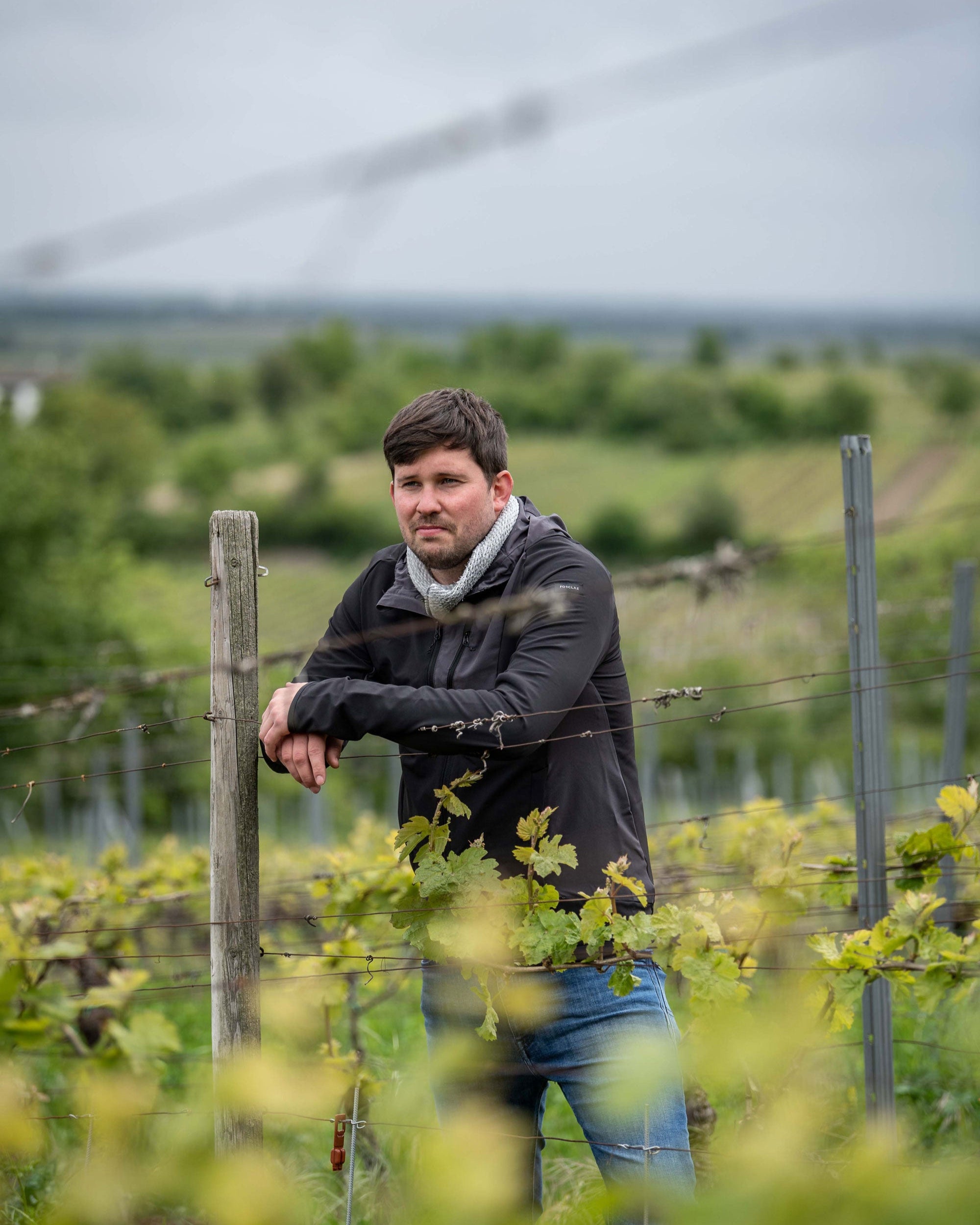
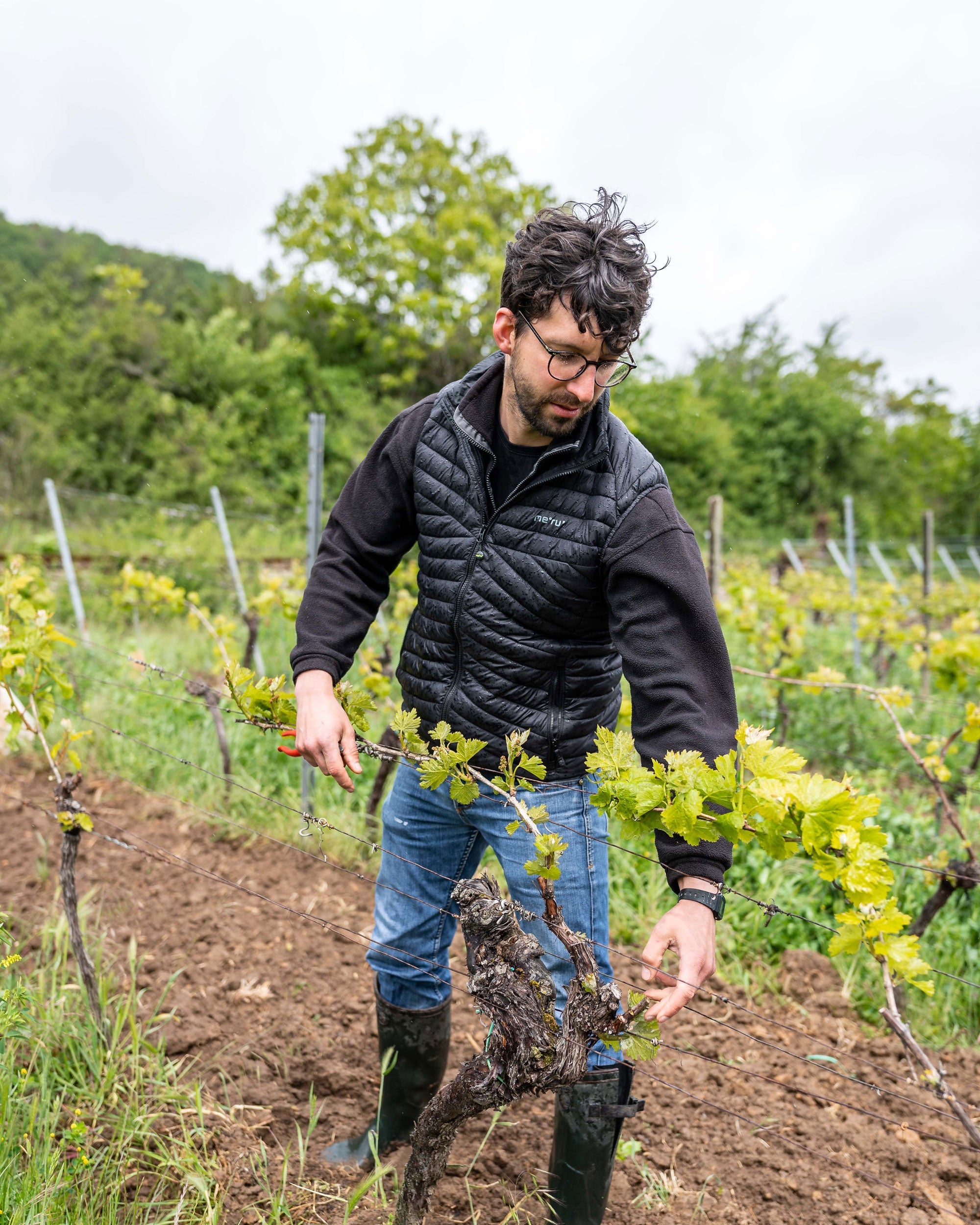
You have certainly moved beyond the practice phase. In recent years, you have clearly found your path, crafting precise wines with moderate alcohol content and developing a distinctive, cooler Palatinate style. Can you describe your winemaking philosophy in more detail?
Biodynamic viticulture is very important to us, but we interpret it in our own way. In the vineyard, we break away from monoculture, working gently, ensuring the soil is not depleted, providing enough shade, and maintaining low foliage walls. Our goal is to avoid producing too much sugar in the grapes.
We extend this mindful philosophy to the cellar, working quite traditionally without filtration. Our aim is to start fermentation with perfect pH values. We use steel tanks only for clarifying and filling. Our wines mature 90% in wood and the rest in clay.
How should a wine from your estate taste, and why?
We aim to produce fruit-reduced, pure, and honest wines. Twelve to twelve-and-a-half percent alcohol by volume is ideal. Bone-dry with extract, lots of power, and plenty of salinity. We like a slightly oxidative note in our wines, yet they must remain very clear and elegant. Moreover, they should naturally reflect their terroir and have great aging potential. In my view, wines today are bottled and consumed too young. Good wines need time.
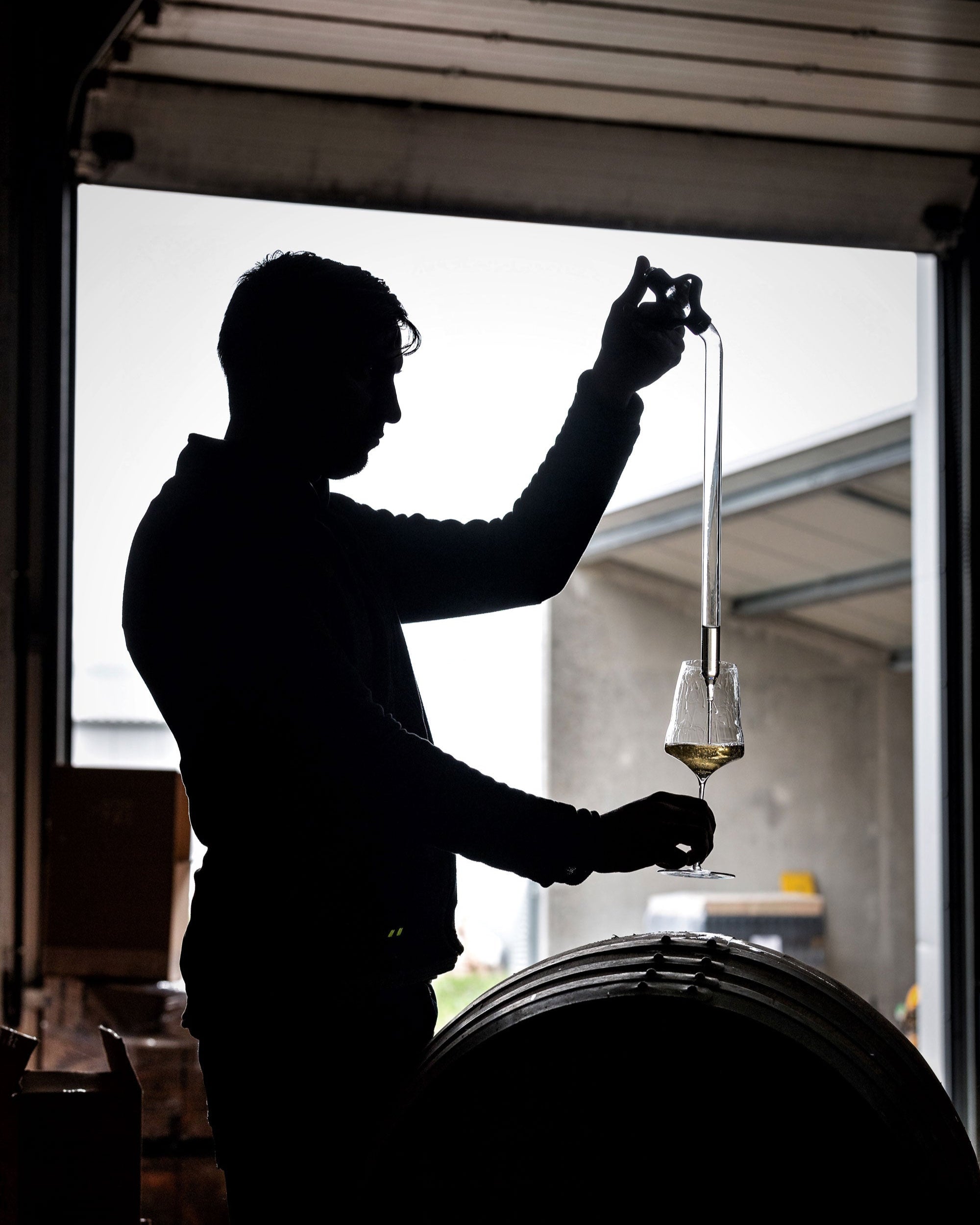
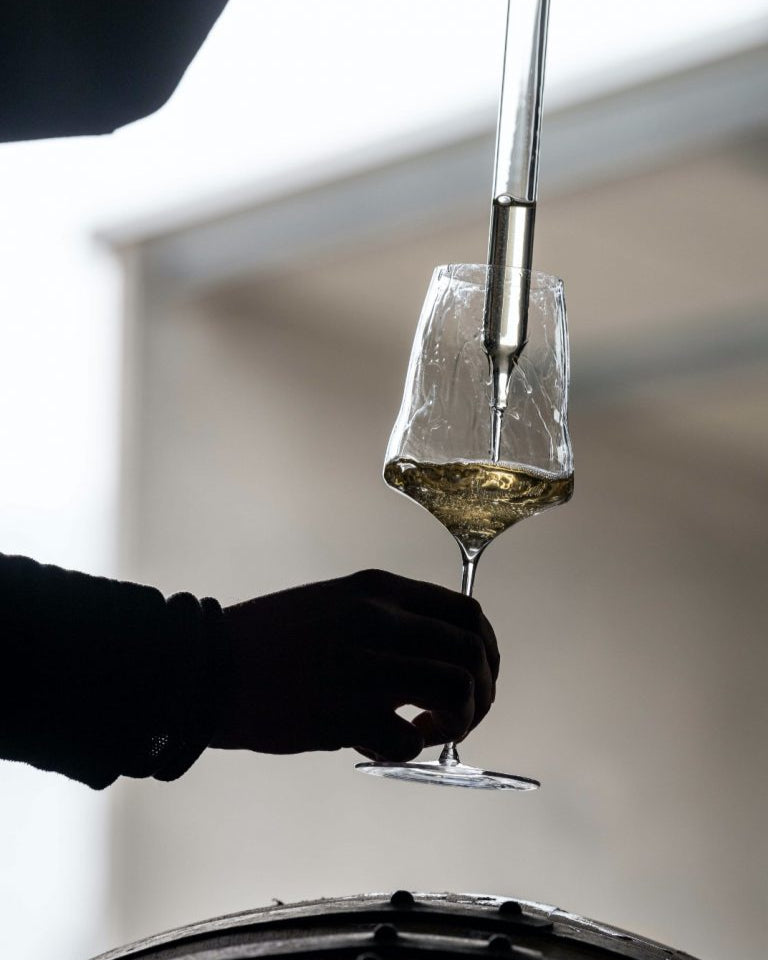
What does a good glass need to do to showcase your wines best?
Our wines, as described, have a wilder and more austere character. The glass must capture and enhance this style perfectly. The opening shouldn't be too wide; otherwise, the aromas will dissipate too quickly.
"I tried Josephinenhütte glasses a few years ago at a friend’s place and was immediately impressed. I love the aesthetic shape and the functionality of the kink. [...] We conducted blind tastings with various glasses, and the Josephinenhütte glasses always convinced us."
Jonas Seckinger, Cofounder Seckinger Winery
How did you discover Josephinenhütte?
It may sound weird, but I am an absolute glass fanatic and always experimenting.
I tried Josephinenhütte glasses a few years ago at a friend’s place and was immediately impressed. I love the aesthetic shape and the functionality of the kink. I ordered a trial set right away. We conducted blind tastings with various glasses, and the Josephinenhütte glasses always convinced us. We use Josephine No 2 for our entry-level wines and Josephine No 3 from village wines to grand cru wines—it fits perfectly for our slightly oxidative Rieslings and Burgundies!
The market feedback on your wines has been phenomenal. What are your future plans?
We aim to keep improving, even though we are very content with the wines we make today. The year 2021 was our best vintage yet—everything came together perfectly. Last year, our brotherly trio was complete for the first time.
We have grown tremendously over the past few years, doubling our quantity each year. Now, we want to take it a bit slower, reduce grape purchases, and focus on our own vines.
Where are your wines currently available?
We are content with our current distribution in Asia and the USA; however, we aim to enhance our export efforts. Southern European markets, such as Italy, hold particular allure for us. During my recent visit to our Italian importer, I noted an interesting perception among Italians regarding Germany as solely a sweet wine producer, which overlooks the superb dry wines we offer. Our winemaking style complements Italian cuisine exceptionally well. Our Italian importer's performance has been commendable, and we are establishing a solid presence there. Additionally, we are enthusiastic about the UK market and are currently undergoing a reorganization process there.
What specific wines from your collection would you recommend people try?
Our flagship wine is the 1 Tal Riesling. Sourced from our father’s initial vineyard nestled in a cool, shady side valley between Mäushöhle and Petershöhle, this site yields grapes that align perfectly with our winemaking approach. The grapes typically undergo a 3-4 day skin contact maceration before fermenting for over twelve months. The outcome is a wine that is wild and herbaceous with intense flavors, yet impeccably balanced in terms of acidity and phenolics.
Could you please explain the significance of the five dots on the label?
The origin of the five dots on our label traces back to our renowned ancestor, Franz von Sickingen. These dots are an integral part of our family crest dating back centuries. They were specifically chosen from the coat of arms by my forebears and now grace our labels.
